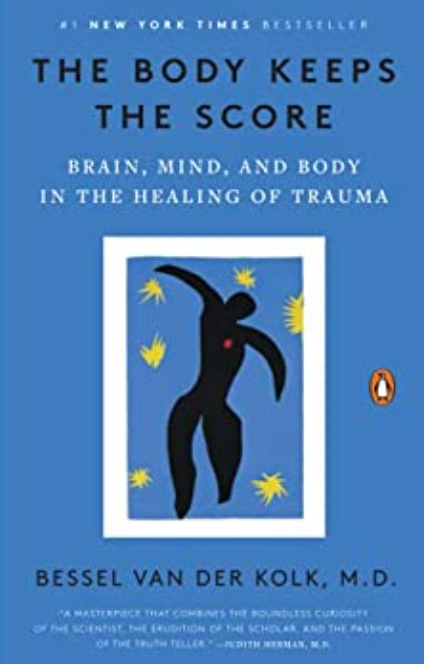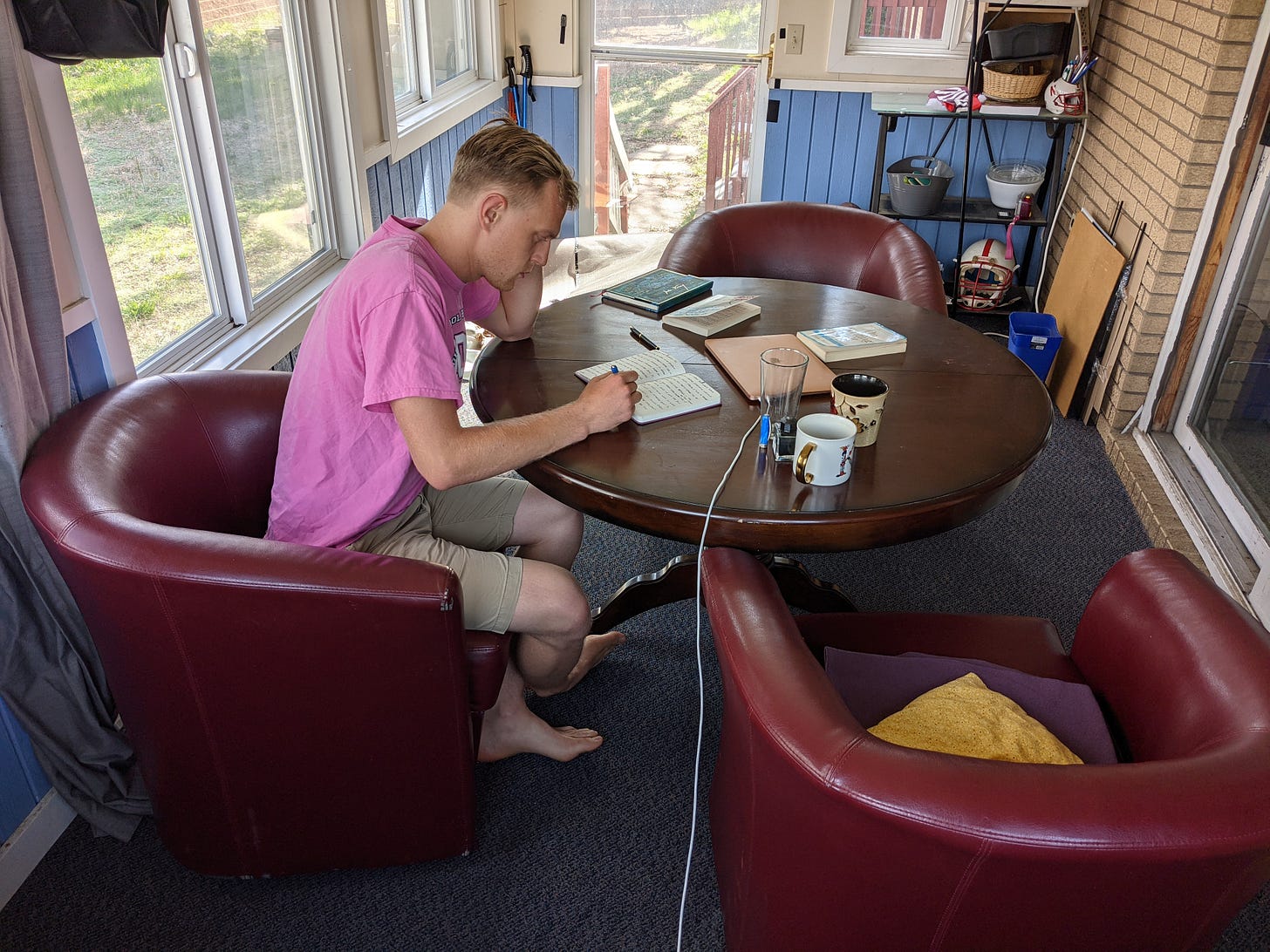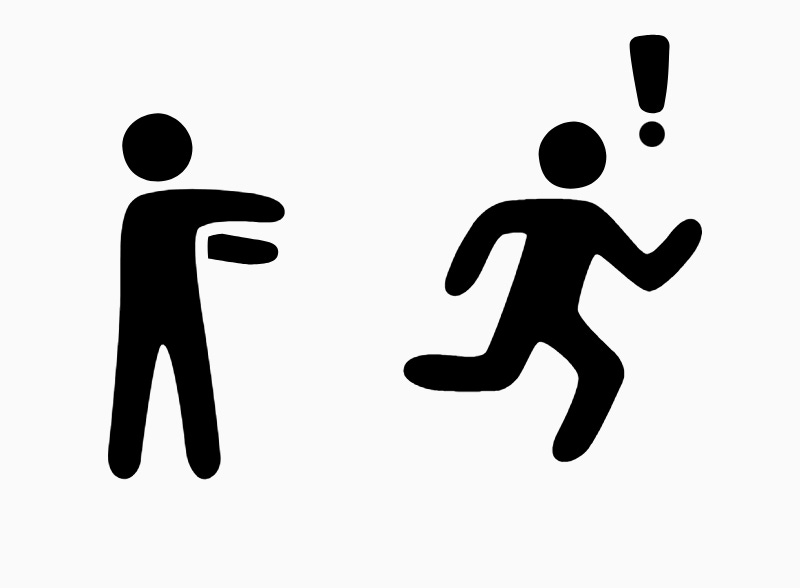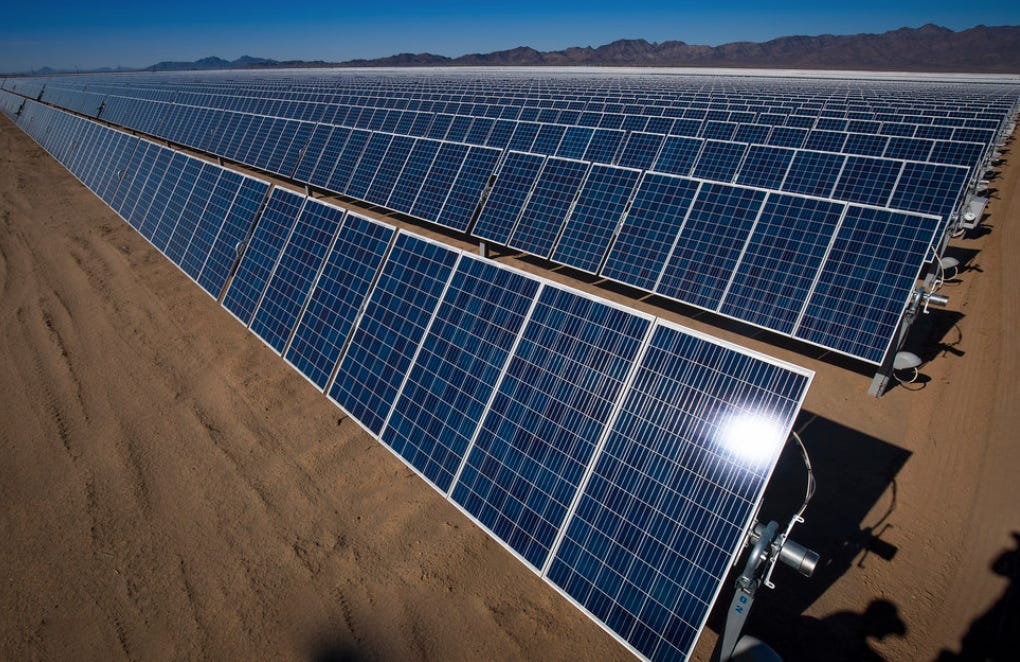
Friday Fun Flier XVII
The five essential posts, a mind-blowing book about trauma/recovery, and something awesome I started using.
Great news, everyone! The Well-Lived Life has officially passed 2000 sign-ups. I still can’t believe it. Six months ago, I didn’t think anyone would want to read the things I had to say. Now every time I send out a post it goes out to more than 2000 people.
Since there’s so many new members, I wanted to catch everyone up on what I’ve been writing about the last four months! So for today’s Friday Fun Flier, I wanted to lay out what I believe to be the five “essential posts” of The Well-Lived Life. These are the stories I’m proudest of, and that I believe offer the most value.
Most of them were sent out a few months ago, so if you just joined, here is your chance to see what’s been going on!
Number 5:
Guerilla Mindfulness: How I Use Ads As A Free Course In Happiness
While teaching an advertising unit to my students a few months ago, I realized something important. Advertisers know exactly what’s wrong with our society. But rather than helping, they exploit our weaknesses as pressure points to sell us crap we don’t need.
In this piece, I break down a few ads for you, introducing mental filters that I call “Guerilla Mindfulness.” The point of GM is to look behind advertising, to condition yourself against buying products/services you don’t need by looking for the problem in society that the advertisers are exploiting when you are assaulted by ads. I also introduce two amazing ad blockers that will eliminate a huge amount of ads in your daily life.
If you’re looking to boost your happiness and keep more of your money, this is the piece for you!
Number 4:
How To Reclaim 7-11% of Your Wasted Brainpower
I think by now we’re pretty aware of the fact that our phones sap our mental energy. But how much do they actually take from us?
Turns out, if your phone is visible and you are trying to accomplish something you don’t need your phone for, you are a measurably stupider person. In this piece, I outline one of my favorite scientific studies, and talk about ways you can break up with your phone.
Number 3:
Give The Gift of Time
Two years ago, while traveling in Southeast Asia, I volunteered at a dog rescue in the hills of Thailand. On a particularly challenging day, I had to bury a dog who’d been poisoned by a local farmer.
I realized in that moment that I felt fulfilled, more than I’d felt at any job I’d ever been paid for.
Why is it that our work culture sucks the life out of us? Why is the time we give away so much more fulfilling? This story is my attempt to answer that, through the lens of my experience at Pete’s Mission.
Number 2:
The Life-Changing Power of Last Week’s News
Have you ever heard of ‘empathy fatigue?’ This phenomenon happens as a result of our 24-hour news cycle. Our minds cannot wrap themselves around the scope of worldwide human suffering in real time, so rather than giving proper care and attention to each tragedy, we numb ourselves. Basically, we overdose on tragedy. We end up saying “that’s terrible!” and then moving on. Then something horrible happens the next day. And the next. And we get exhausted, not knowing how to help.
There’s a better way! In this piece, I lay out ways that we can specialize. It’s perfectly ok to pick a few issues, and apply your attention `deeply to them, rather than not being able to care about all of human suffering. In this piece, I offer my own tips and tricks for how I achieve this in my own life.
Number 1:
My Nepali Brother Taught Me The Meaning of “Enough”
One of my favorite personal stories, this piece outlines one of the most intense moments I had in Nepal when I was getting fitted for a sport coat and my host brother offered to help me pay for it.
For a bit of context, my host brother was in the middle of constructing his house himself and hadn’t finished his top floor or kitchen yet. And he offered to help me pay for a gratuitous item that I’d wanted simply because I wanted it. I was shaken, and I learned several valuable life lessons.
This is the most-read and most-shared piece I’ve written on here, and it’s also the piece I’m proudest of. I hope you take something from it!
An AMAZING book:
The Body Keeps The Score by Bessel Van Der Kolk, M.D.

“Trauma victims cannot recover until they become familiar with and befriend the sensations in their bodies. Being frightened means that you live in a body that is always on guard. Angry people live in angry bodies. The bodies of child-abuse victims are tense and defensive until they find a way to relax and feel safe. In order to change, people need to become aware of their sensations and the way that their bodies interact with the world around them. Physical self-awareness is the first step in releasing the tyranny of the past.”
This is one of those books that you just cherish. Van Der Kolk has spent more than forty years researching the human body’s reaction to trauma, and how we can use methods outside of pharmaceutical drugs to move past it.
Trauma can be debilitating. People who have survived traumatic experiences see and experience the world completely differently. The suppression of trauma in the human body can lead to a host of problems, including autoimmune conditions, chronic fatigue, and fibromyalgia.
Drugs and talk therapy, while partially effective, cannot effectively heal trauma on their own. It is stored all over the body, and only whole-body solutions can bring lasting relief, and help the victim live a complete life.
I’ve developed a deeper understanding of myself and the people around me after reading this masterwork and will be re-visiting it for years to come.
Something awesome I started using:
Zombies, Run!
I’ve been trying to build a sustainable running habit since… Since time immemorial. Since dinosaurs roamed the earth. I’ve always failed.
Zombies, Run is helping me towards that goal. Though I can’t say that I’ve built a sustainable habit yet (I’ve gone on sixteen runs in a twenty-day period) this app is helping my towards that goal in ways I never thought possible. Here are my stats:
Notice how the second stat is “missions?” That’s why this is such a powerful habit-forming tool. You’re not just some sweaty human on a run in the ZR world. You’re a “runner” for a colony of humans trying to survive in a post-apacolyptic wasteland. You must gather supplies and bring them back to base, or your people will not survive!
Each time you go on a run, you bring back a certain number of supplies that you can use to add to your “base” in the app. It’s very similar to the way by students describe Clash of Clans, except you’re actually doing something useful to gather your supplies.
The best part? There are zombie chases involved. As you’re running, you’ll hear zombies growling right behind you, with proximity warnings flashing in your headphones. You have to pick up the pace by 20% for a full minute, or you’ll have to drop some of your supplies to evade them.
Each mission includes an audio story that plays over your music as you run. It’s VERY in-depth. You receive emails after certain missions that help you slowly uncover the mystery of how the zombie apocalypse started, and reveal pieces of your character’s background.
The first five runs are free, and after that it costs $5.99 a month or $30 for a year. I highly recommend it as a way to kick-start a beautiful habit!
And now, the good news story of the week!
A few weeks ago, for a fleeting four seconds, the State of California was running its main power grid on 95% sustainable power. There are several caveats to that story (like the fact that California burns a large amount of coal for the purpose of exporting power to other states) but it’s still a major victory.
California is the world’s fifth-largest economy by itself, and they’ve now got enough sustainable power infrastructure in place to produce electricity for the entire state. On sunny days, they have enough power to sell some cheaply to other states.
The whole story can be found here.
Change feels like it’s happening at a snail’s pace, but it’s happening! We’re moving towards a more sustainable future as power-producing goods become cheaper and more effective. If the world’s fifth-largest economy is almost fully sustainable, it’s only a matter of time before most of our country follows! Sustainable infrastructure is too cheap and effective for it not to happen.
That’s all for this week folks! I hope that you live a blessed life this coming week. If you liked what you read, please share! It helps us grow :)







